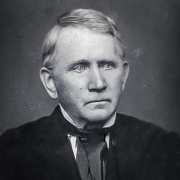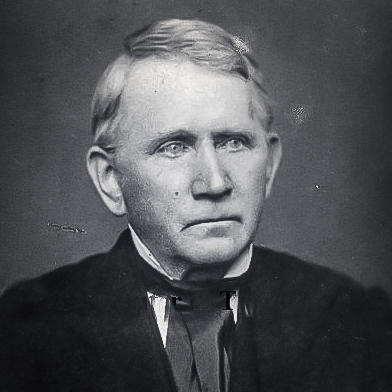Porter’s Landing
Porter’s Landing
by Mark Smith, OHS secretary
 A few weeks ago while doing some local history research I happened on some photographs in the archive section of LHSM. One photograph showed a group of teen girls in East Leland walking up Horn Road, back when it was still sandy and prone to washouts. In this photo from the 1920’s it is a beautiful summer’s day, about noon based on the shadows. Nine girls wearing loosely fitting, white, short-sleeved blouses with black sashes and knee length black bloomers are laboring up Horn Road in the heat, up the “view hill” from Porter’s Landing on Lake Leelanau. Most of the girls wear wide-brimmed white stetsons. The caption states that the girls were part of a camp, Camp Oshibwa, and they are on an excursion. This was the start of my investigation. This snapshot, this fascinating slice of life from over 100 years ago, inspired me to start digging. I wondered who these girls were, and what it was like to be young and alive under the sun on that beautiful day so long ago.
A few weeks ago while doing some local history research I happened on some photographs in the archive section of LHSM. One photograph showed a group of teen girls in East Leland walking up Horn Road, back when it was still sandy and prone to washouts. In this photo from the 1920’s it is a beautiful summer’s day, about noon based on the shadows. Nine girls wearing loosely fitting, white, short-sleeved blouses with black sashes and knee length black bloomers are laboring up Horn Road in the heat, up the “view hill” from Porter’s Landing on Lake Leelanau. Most of the girls wear wide-brimmed white stetsons. The caption states that the girls were part of a camp, Camp Oshibwa, and they are on an excursion. This was the start of my investigation. This snapshot, this fascinating slice of life from over 100 years ago, inspired me to start digging. I wondered who these girls were, and what it was like to be young and alive under the sun on that beautiful day so long ago.
I knew nothing about Camp Oshibwa. But I knew that Porter’s Landing was named after John Porter of Omena. John Porter came to teach with Reverend Peter Dougherty at Grove Hill School in Omena in 1854, when he was 28 years old. He had been a teacher and a farmer in his home state of Pennsylvania. Porter’s uncle, Andrew Porter, was in charge of the Indian Mission in Bear Creek (Petoskey) in 1854. Mr. John Porter remained a teacher in Omena until 1861, then moved to Section 11 in Leland Township (East Leland), where over time he had purchased 356 acres of prime farmland. John Porter, in his time, was township supervisor, justice of the peace, township treasurer, highway commissioner and county surveyor. Many of his legal records still survive.
- John Porter
Sometime after the Civil War Mr. Porter and the Reverend George Thompson of Leland seem to have started a small church, called “Concord”, probably situated in Mr. Porter’s house or the Horn Road schoolhouse. Records from 1867 indicate that Reverend Thompson preached there intermittently, relying on good ice to cross over in the winter, a time of relatively easy travel. In 1867 Thompson records 5 males and 6 females in the small congregation. Further research will likely reveal more. John Porter lived a long and respected life, dying in 1904 at the age of 78 and is buried with his family up the hill from his farmhouse, in the East Leland Cemetery on Horn Road.
Fast forwarding to the turn of the century we find that there is a rustic resorter community which has established itself in East Leland. Thanks to a trove of marvelous old photos, an old diary from 1908, a reminiscence by Warren R. Smith, another by Barbara Trueblood Abbot and an unpublished manuscript by Maryellen Gould Hadjisky I was able to piece together a picture of resorter life in East Leland in the early days. It seems that the very first visitors to East Leland came before the turn of the century, but only started coming in any significant numbers some time after 1900, probably venturing on from the Fountain Point Resort on South Lake Leelanau. This paper by necessity will limit itself to the beginnings of the East Leland community. I hope others will read this and add to the story.
The early resorters rented camping sites from Mr. Porter for 5 dollars per summer and he stored their tents in his barn for them until they returned the next summer. The tents were on platforms in the woods near the shore. According to a reminiscence by Warren R. Smith “Mr. Porter may have sold a few lots directly to occupants but he sold most of his Lake Leelanau frontage to Mr. Best (Maro the Prestidigitator) who bought a lot of other lake frontage, and most of us bought from him or his widow.” And who were these intrepid campers? Mostly they were college lecturers and their families who came up Lake Michigan by ship from Lake Forest, Illinois. The early names include the following families: Atkins, Bridgman, Burlap, Stanley, Locy and Gould. Their camps were rustic and their days were long and filled with the physical labor of a camper. According to Barbara Trueblood Abbot: “The air on arrival from downstate always brought on deep breaths and murmurs of appreciation for that clear and unpolluted inspiration, faintly scented with the smell of the pine and balsam, both fresh, and from the fires burning in the stove and fireplace.”
- SS Leelanau
Mostly they arrived at their final destination by boat, at Porter’s Landing, the public access that still exists at the end of Horn Road. Large steamboats were able to dock there, such as the SS Leelanau coming from Fouch’s Landing at the south end of South Lake Leelanau, piloted by Captain VerSnyder (see photo). At the time the roads into East Leland were mostly swampy, and land travel was very difficult as compared to boat passage. According to Warren R. Smith the summer of 1908 “was the one when some farmers from down the lake were angered at the height of the water was kept and blew up the dam with dynamite, lowering the water six feet, more or less. There was water only in the channel in the river and the beaches along our shore were 50 more feet, as I remember from dragging a heavy farmer’s boat out over the beach.”
Also worthy of note is the Indian Trail which existed along the shore of this part of Lake Leelanau, which Mr. Porter insisted be maintained and respected as a right of way for everyone. According to Warren R. Smith, “When we arrived there was a very well defined trail along the lake shore, said to have been an Indian trail from prehistoric times. There are many traces of it still extant. It ran right through our kitchen and it was not unusual to find somebody who was out for a stroll going through our kitchen. Also, I can remember that we came in for some criticism for having obstructed one of the old landmarks. Some of the strollers were doubtless guests from the Linebargers, who for many years had a summer resort-hotel, the only such enterprise in the East Leland.”
- Washing Up
- The Gap Picnic
What did the resorters do all day and how did they get by? Farmers from Leland and environs would make regular stops at Porter’s Landing, with vegetables, fruit, eggs and butter. Baked goods and other vegetables could be had from Mrs. Richard Steffens, and butter came in large crocks from Spinniken Brothers. Fish were still abundant in the lake and made for great eating. Drinking water came from a spring at the base of Horn Road carried by hand to individual camps. All other water was carried up from the lake until wells started being dug, mainly in the 1940’s. There were no refrigerators or even ice boxes in the early days so resorters relied on spring boxes kept in running freshets. For many years there was ongoing building, adding on, and modifying of the camps, which also took up much time. Shopping trips to Leland by boat also filled up the days, and Leland was the place to mingle with other resorters, young and old. It is said that Leland folk had it easier.
Another popular activity was picnicking. According to Warren R. Smith
“The Gap [at the north end of Lake Leelanau] was the most popular spot for young and old. We could get there by rowboat or with motorboats towing a string of rowboats. The Gap was said to have been an early attempt to cut a canal between the two lakes, the effort being discontinued when the difference in lake levels was observed. More probably it was merely for a road down to the pier which once stood there and sand was blown out by wind to present level.” Baseball games were played “in the Owens lot” and hide and seek was popular amongst the youngsters. In this close-knit community everyone knew each other and the feeling must have resembled an extended family reunion. Most of the camps had a piano and singing was a favorite pastime. In a time before radios people made their own music. Many a quiet summer evening ended with groups of people in canoes in the middle of the lake, singing old favorites. Later this tradition was transferred to the Leland Country Club.
But what of Camp Oshibwa? Clara Porter Atkins (no apparent relation to John Porter) started the camp in 1920. Clara’s daughter, Eleanor, is probably the photographer responsible for the photographs of the girls of the camp. The Atkins family first came to East Leland in 1901, making them one of the earliest. In 1920 Mrs. Atkins and her husband, Professor Martin D. Atkins, were divorced; he subsequently died in 1924. The camp was in operation at least until 1926. It is not clear who attended the camp but it seems possible that the girls who attended were all East Leland summer resorters. Activities at the camp included water sports, hiking, nature walks, drama and singing. Also evident from the photos are girls dressed up as pirates, so many kinds of fun were on offer.
- Walking up Horn Road
- Picnic at the Gap
- Map from 1908
In addition to photos of Camp Oshibwa I have included some photos of other scenes from the early days of East Leland: well-to-do young men posed on docks, scenes of campsites, and more. I hope you enjoy looking at these photos as much as I did when I first discovered them. There are many more. And there are many more stories that came out of East Leland in the early days. Hopefully someone will be inspired to tell the story in more depth, but for now here is a taste of the early days of East Leland at Porter’s Landing.
(Details of Clara Porter Atkins’ life from Leelanau Enterprise, 19 July 1973, and ancestry.com, thanks to Marsha Buehler; thanks to the help and support from the Leelanau Historical Society; thanks to Andrew White for providing me with access to papers from the American Home Missionary Society, where details of Reverend George Thompson are to be found. All other sources as mentioned, unpublished.)


















